Eco-Travel or Sustainable Travel is getting more and more popular, making us very happy to see. There are eco-hotels, eco-tours, and sustainable travel gadgets coming up everywhere. Over tourism caused massive damage to our planet, and this must change. Traveling is something that makes people aware of how valuable our beautiful world is, and that is why we believe that travelers should take care of our planet. In this blog post, we explain what Eco-Travel is and how you can be a more sustainable traveler.
What is Eco Travel?
Eco Travel or Eco-Tourism is a greener way of traveling, which means that as a traveler, you take care of mother nature and your surroundings. To be a sustainable traveler means that you take care of the following aspects:
- The Environment
- Local Culture and Economy
As an eco traveler, you minimize your impact on your surroundings and support the local people and small businesses.
Why is Eco Travel important?
Tourism increased drastically because traveling got much cheaper in the last years. Over tourism caused a lot of damage, mainly on the environment. Especially plastic pollution, damage to reefs, and harm on animals are causes of it.
If tourism continued like this, our planet would suffer so much that in the end, we won’t have any beautiful places to visit. It already happens that places have to get closed because the damage of over-tourism got too big like the Phi Phi Islands in Thailand.
Eco-Travel is essential that we can save the environment, species, reefs, and cultures of the world. The change starts with us, and we can do this with small changes we make when we travel.
Our Eco Travel Guide
Avoid single-use Plastic
Filter Water Bottle
The number one travel essential we recommend to every traveler is a filter water bottle. We use a bottle from Lifestraw and feel like we never made a better purchase in our life. A filter bottle allows you to drink tap water everywhere in the world. The filter protects against bacteria, parasites and microplastics, chlorine, and organic chemical matter such as pesticides, herbicides, and even improves the water taste. Since we are using our Lifestraw bottles, we saved hundreds of plastic bottles while traveling.
If you don’t want to buy a filter bottle, we recommend you to bring a regular water bottle because most accommodations and restaurants have filter water, which you can refill in your bottle.
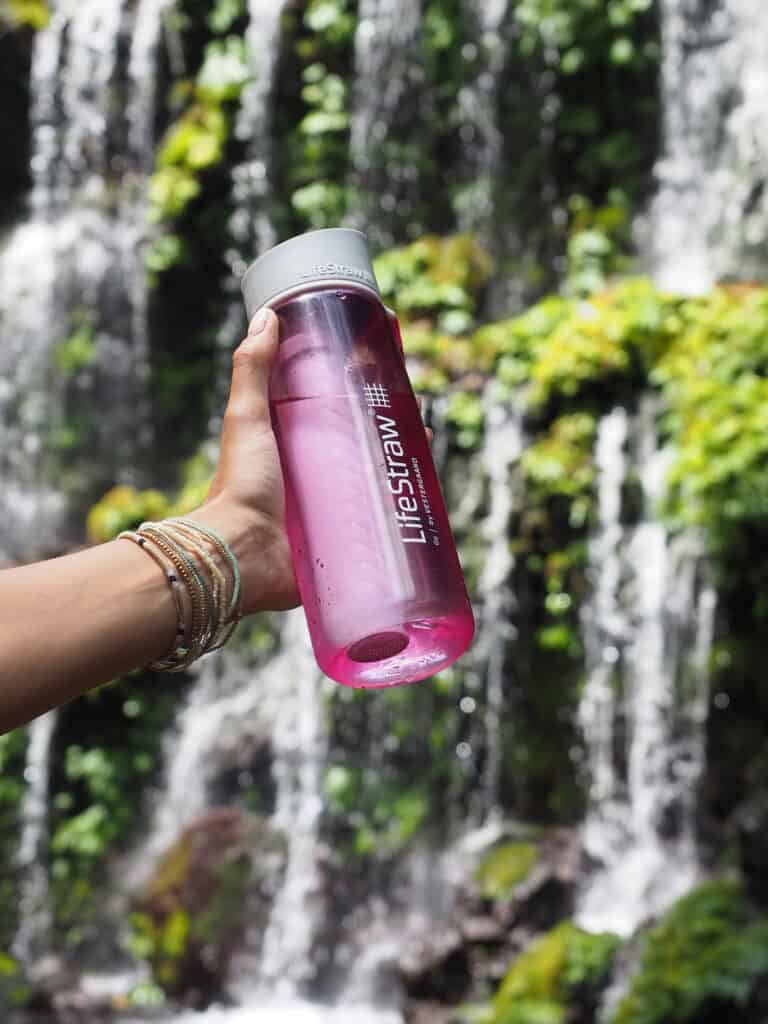
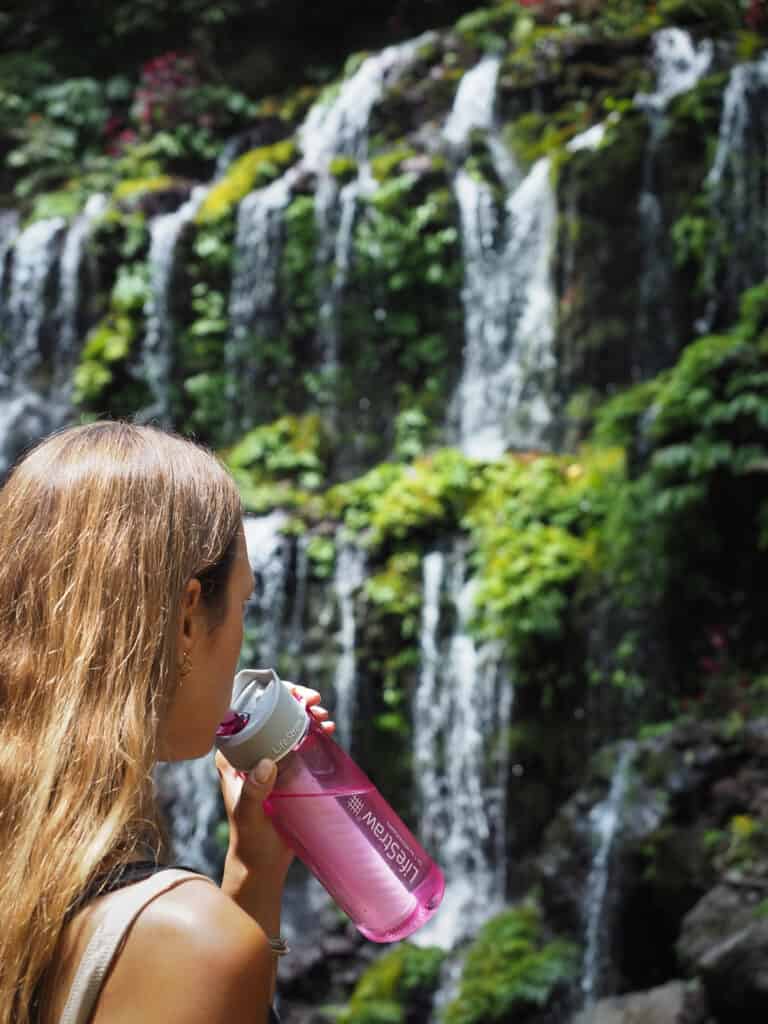
Say no to straws and any other single-use plastic
Besides plastic bottles, a widespread problem is that most of the restaurants give you plastic straws with every drink you order, from fruit juices to cocktails and fresh coconuts. We know it’s only one straw, right!? But if you sum it up with every person that orders a drink several times a day while traveling, you’ll get a pretty significant number.
We usually ask the waiters when we order a drink if they have plastic straws and if they say yes, we ask them to leave the straw away. We always have our metal straws with us because when it comes to drinking coconuts, it gets pretty challenging to do so without a straw.
We also learned to ask the waiters in the restaurant if they have filter water by glass because, especially, the small local places often bring you a plastic bottle when you order water, and that is what we want to avoid. So if they only have water in plastic bottles, we mostly go for fruit juice or a homemade iced tea, which is mostly not more expensive than water.
But it’s not only straws that end up in the ocean and nature. It’s every kind of single-use plastic from packaging. We try to avoid consuming food wrapped in plastic completely when we travel. We always check if there is a bulk-store in the area and eat a lot of fruits and fresh food. If you visit Southeast Asia, for example, you will find a lot of delicious street food. So we recommend you to bring your cutlery-set so you can eat everything and don’t need to use single-use cutlery. They can be bought at any zero-waste store.
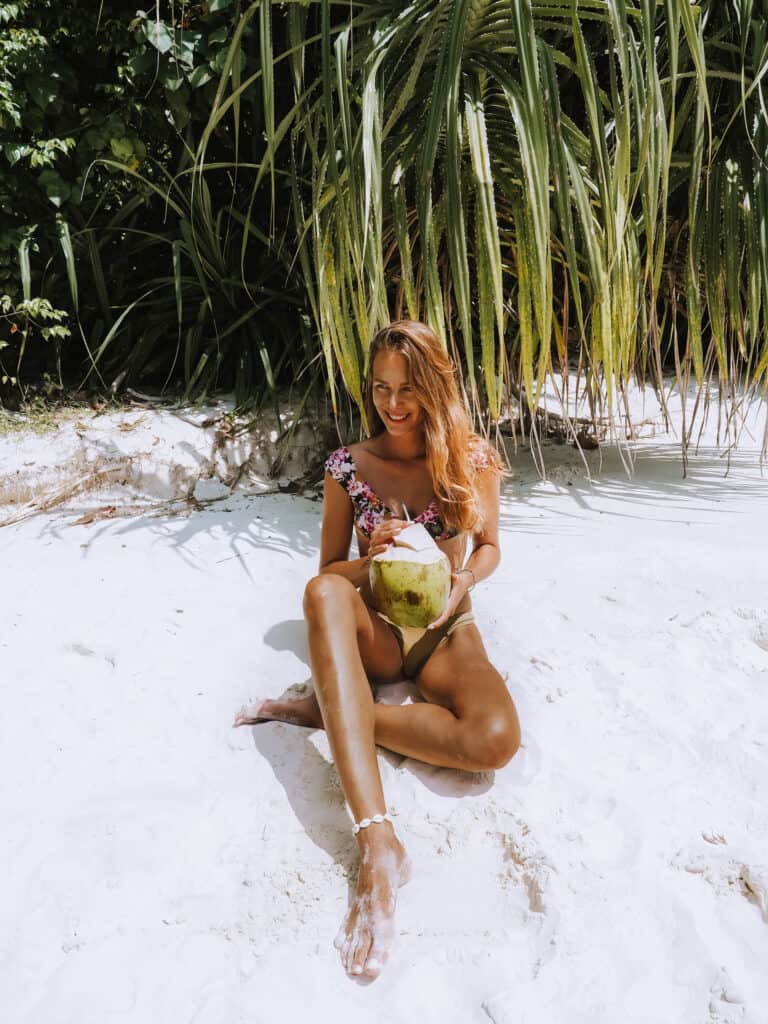
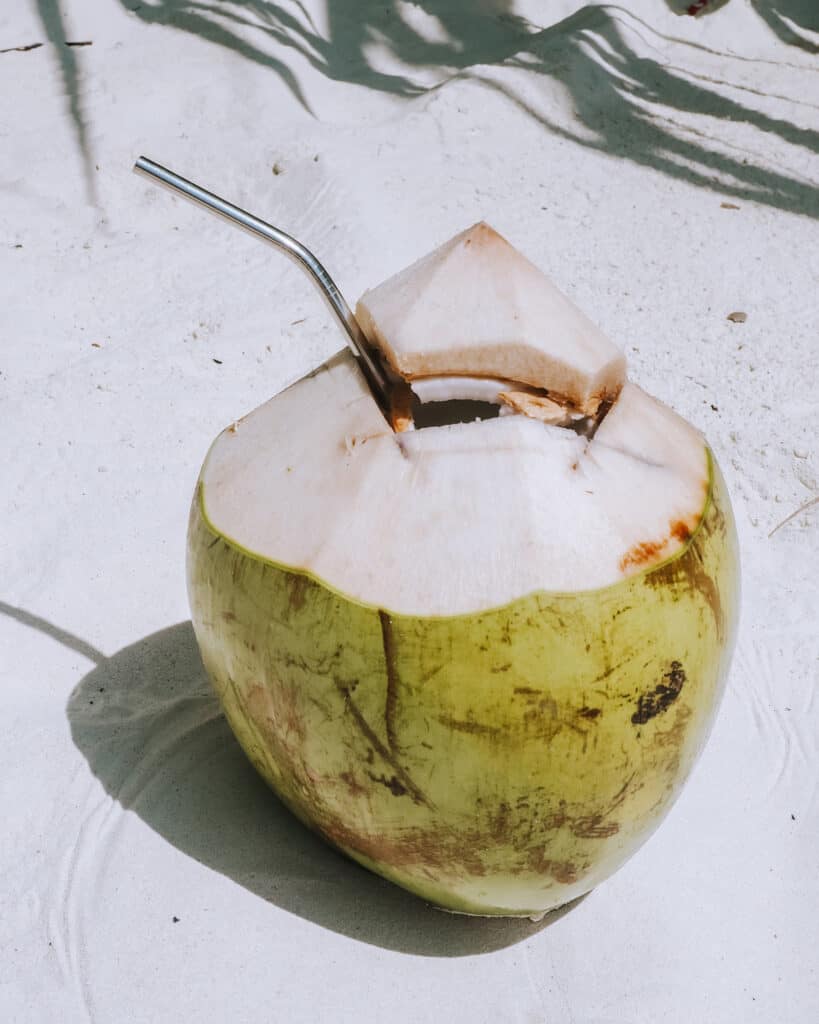
Don’t bring plastic with you when you travel
One experience we made in the past is that we brought shampoo and sunscreen in plastic packing to our trip. We finished these products during our journey and put them into the trash at our accommodation. During exploring the beautiful paradise island we were at, we crossed a landfill in the middle of the island. At that point, we realized that all the trash that we bring to this island would not disappear; it will probably never leave it again. It will stay there in the middle of our dreamy paradise island and possibly even end up in the ocean. It’s not like back home where most things can be recycled and disposed of correctly.
That’s why we travel now with soap-bars that have no packaging or we refill the products that are in bottles. These products can be found in every zero waste shop. We make a challenge out of this to have fun doing it. So the challenge is: make zero plastic waste while visiting a paradise island. It’s not that easy, but it is possible. Will you join this challenge on your next trip?
Also, we recommend you to avoid the products that are provided by the hotels you are staying at. You probably won’t stay long enough to finish a whole soap, and the rest will end up in the trash, as well as all the plastic packaging of these little bottles and wrappings.
How to reduce plastic waste
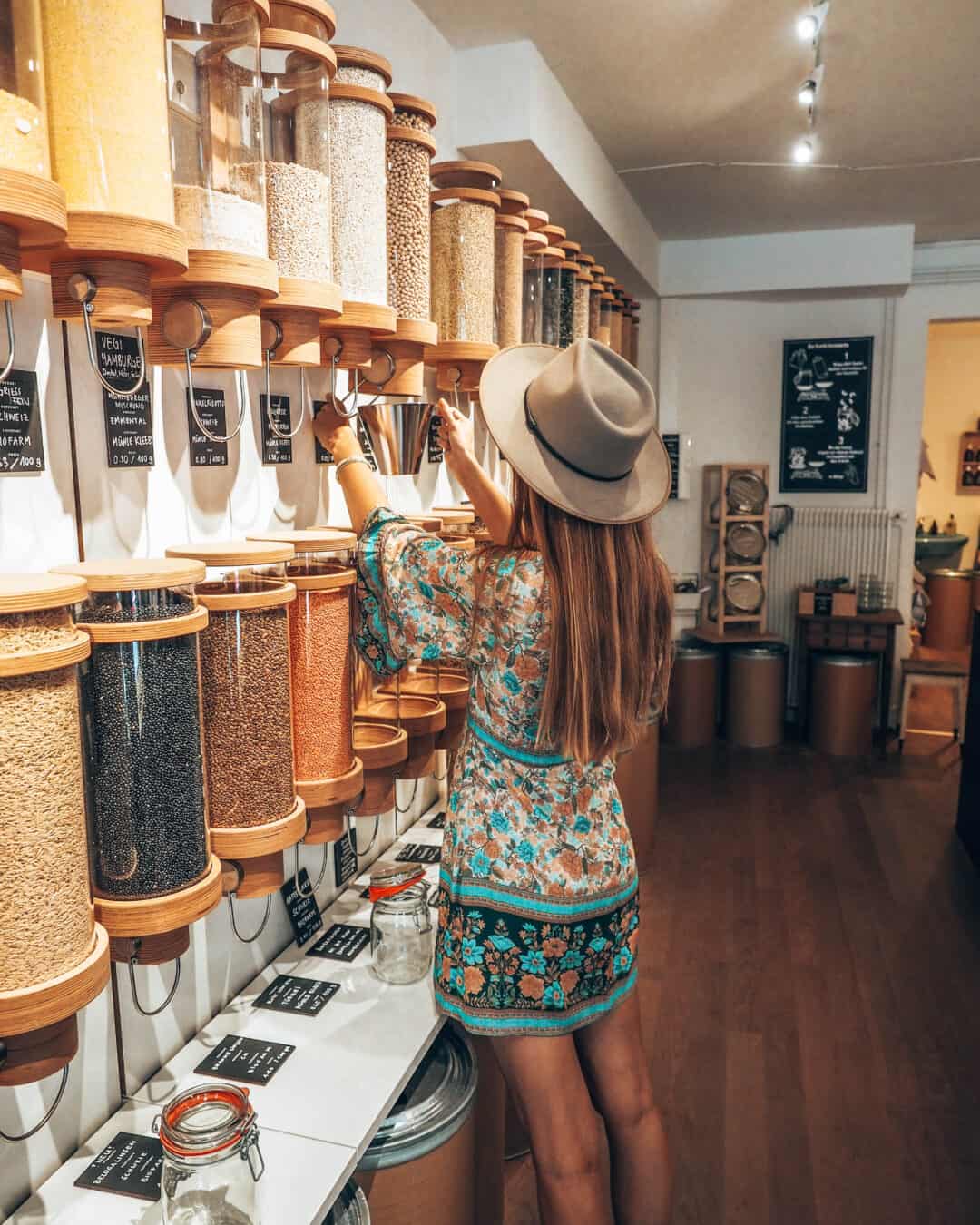
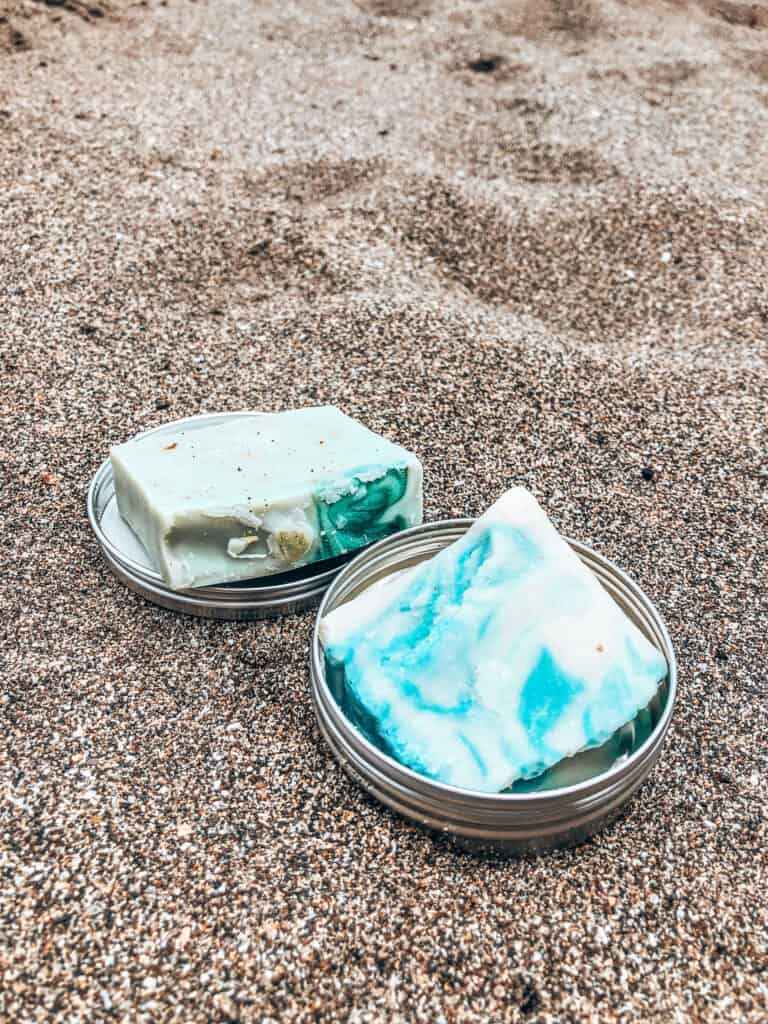
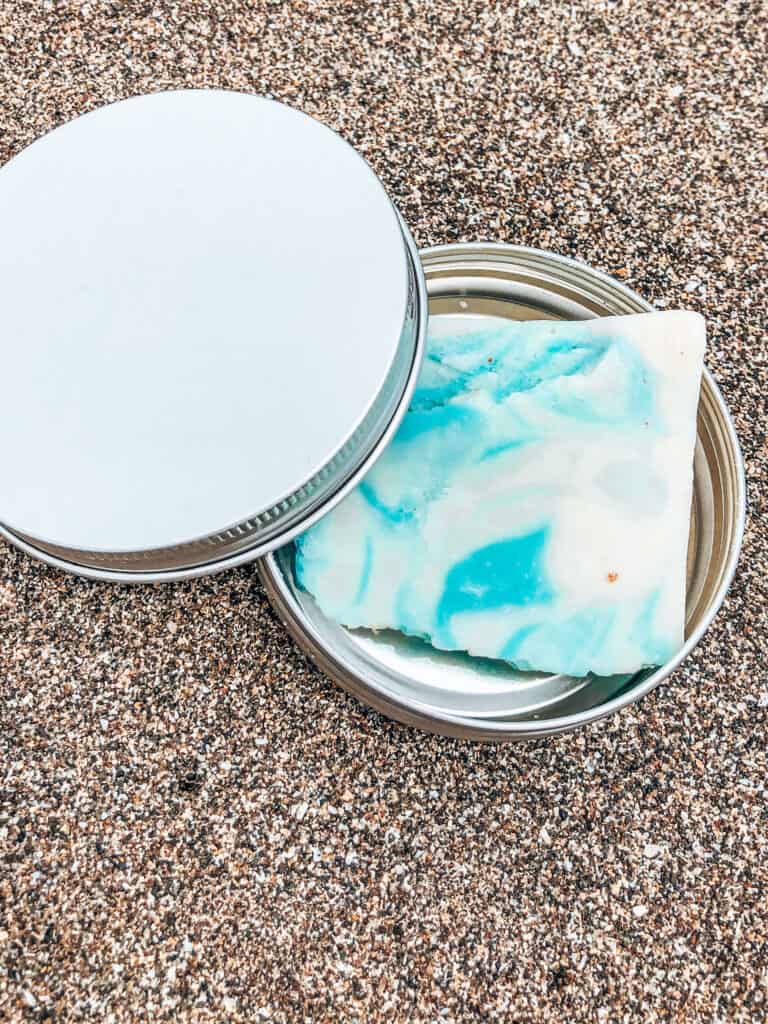
Plant-based Diet
To eat a vegan diet is one of the most effective ways to protect the environment. That is why also, as an eco-traveler, you can lower your impact if you eat a plant-based diet. It’s not always easy to find the best vegan places to eat. That is why we use the apps HappyCow and abillionveg, which we highly recommend to you (even if you are not a Vegan). Both apps are beneficial in finding places to eat and to know if they have Vegan or Vegetarian options or are even entirely plant-based.
If you would like to know why a vegan diet is good for our planet and you, check out the following blog post.
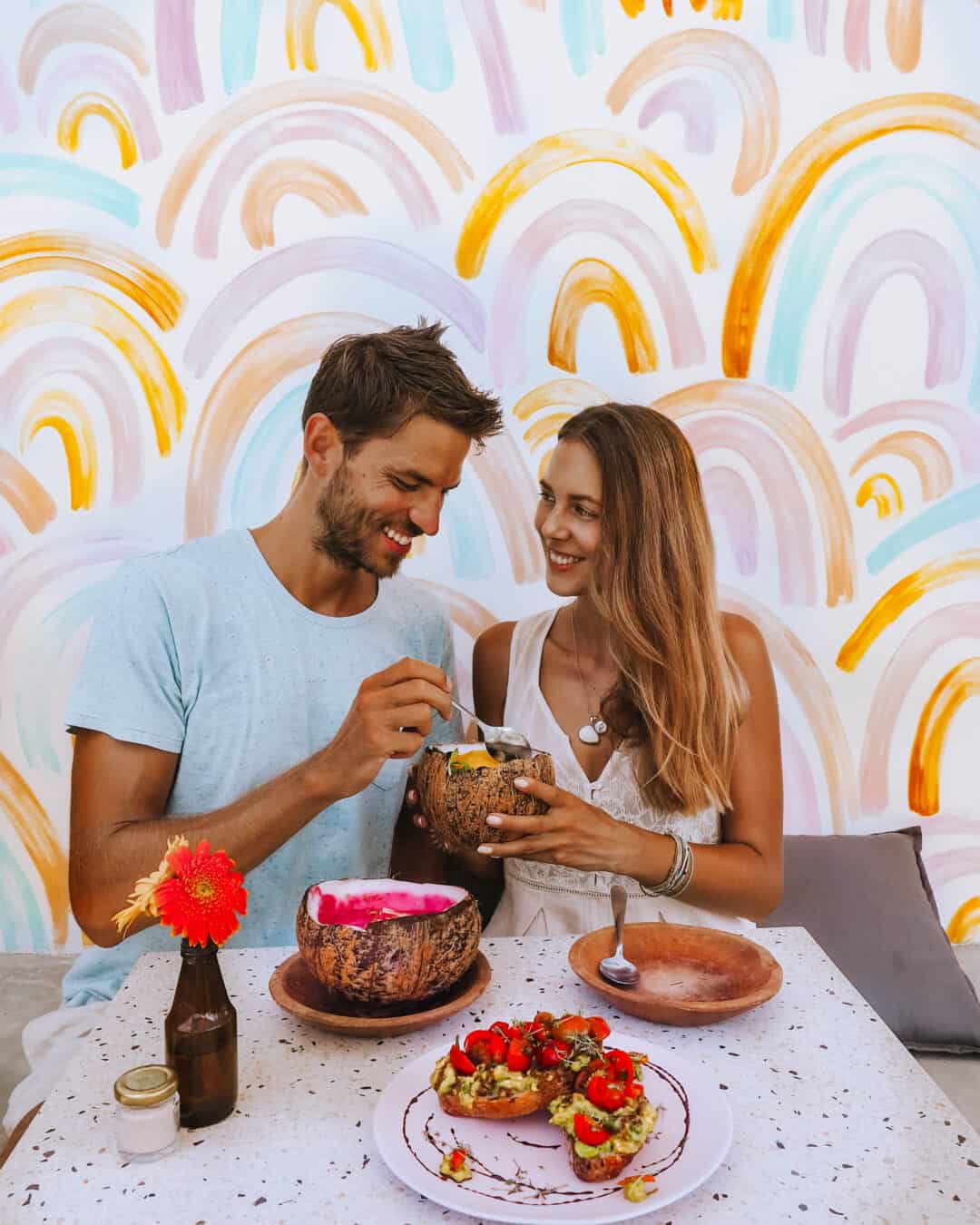
Top 3 reasons why you should go plant-based
Support local business
Part of Eco Traveling is to support the small local businesses. This is important because, like that, you help the local economy, and usually, the small companies have way more sustainable practices than big chains.
We recommend staying at Eco Hotels or guesthouses of local people instead of supporting big hotel chains. Also, when it comes to eating out, it’s best to eat at local places or especially to eat products that are growing in this country instead of imported products. For example, if you like wine, try a local one instead of an imported wine. Or eat the fruits and veggies that grow in this country instead of imported ones.
We prefer to look for a market to buy food instead of big supermarket chains. This helps the local farmers, and usually, the food we buy is fresh, seasonal, and locally grown.
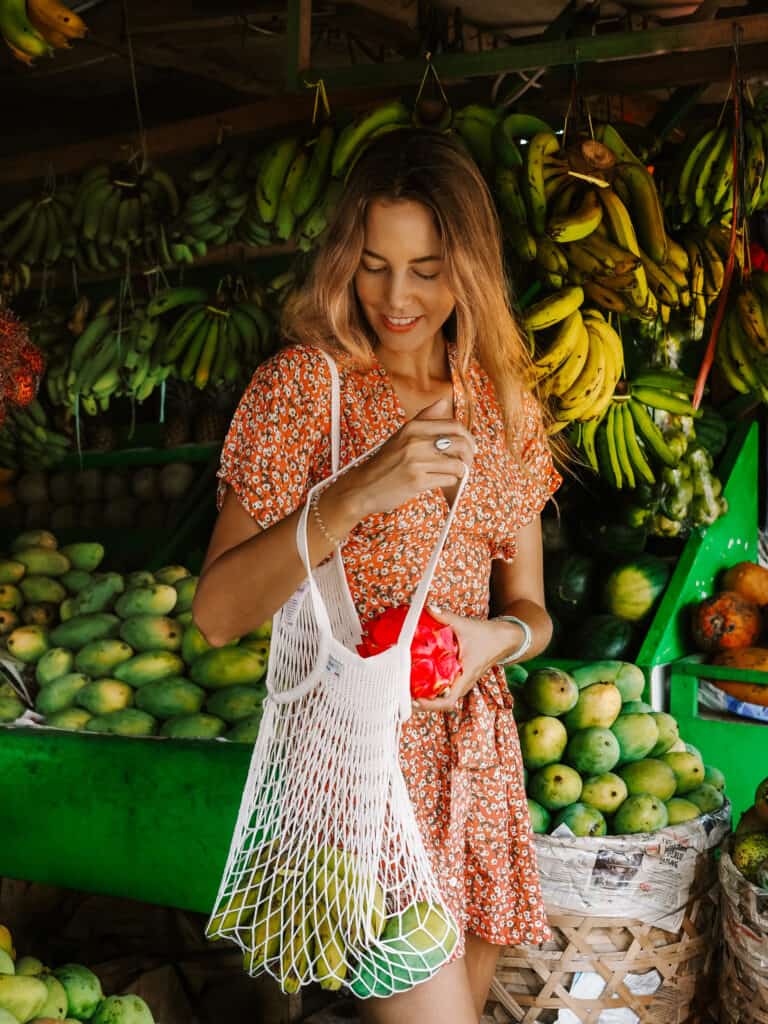
Buy a reef-friendly sunscreen
About 63% of the ingredients of a conventional sunscreen are harmful to our health as well as for the environment. Especially the reefs are suffering from the chemicals that we bring to the water using these sunscreens. It’s about 14 million kilos of sunscreen that ends up in the world’s ocean every year, which causes coral bleaching.
So if you buy your next sunscreen, make sure it is one that is reef friendly. That means it is free from synthetic chemicals, preservatives, and perfumes. Also, it is significant for the reef that the Mineral UV-filter is a Non-Nano Zinc Oxide.
Our reefs are one of the most important ecosystems of our planet. Over 50% of the world’s coral reefs have died in the last 30 years and up to 90% may die within the next century. This leads to habitat loss for many marine species, for example nearly one-quarter of the world’s dolphin species are threatened with extinction.
But the reefs are not only important for the ones that are living in the ocean it’s also essential for us humans to survive. They generate half of Earth’s oxygen and absorb nearly one-third of the carbon dioxide. That is why it is so important to do everything that is in our power to protect them.
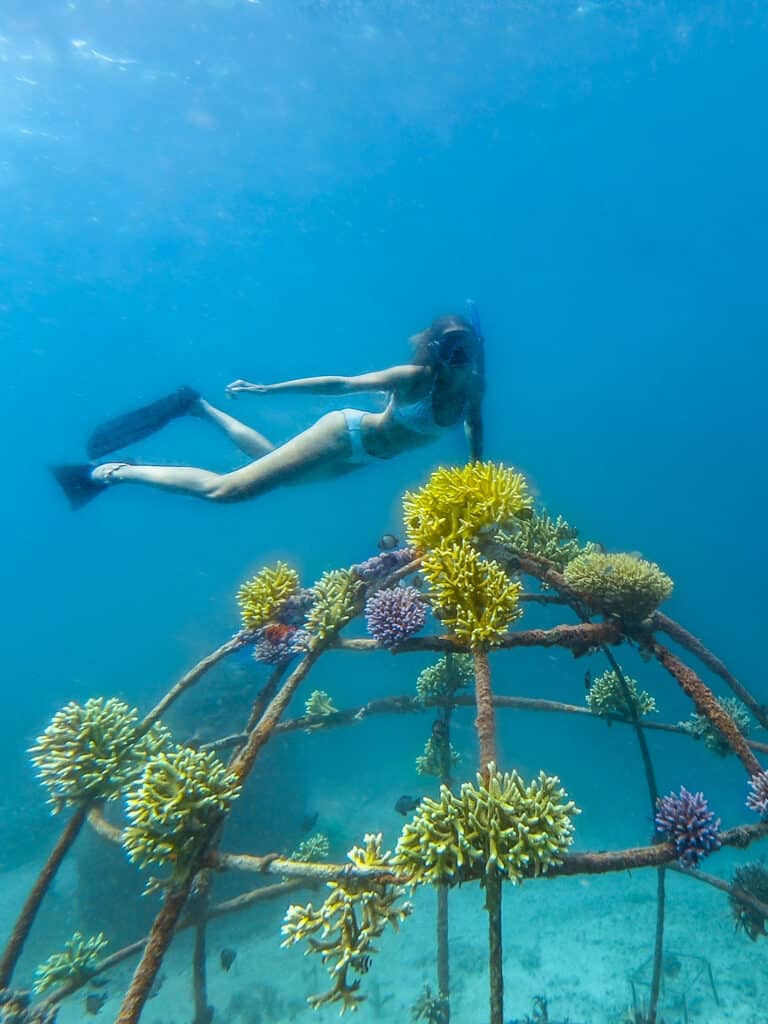
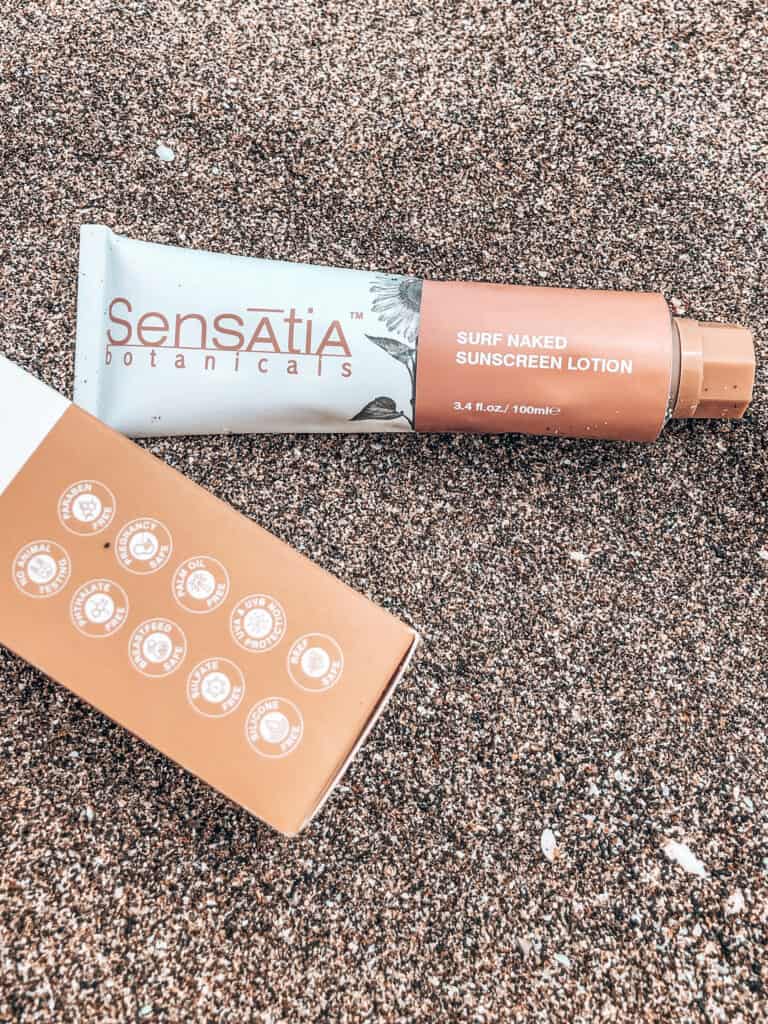
Choose the best transportation and compensate your footprint
When it comes to Eco Travel the choice of the most eco-friendly transportation is a very important aspect. The following ways of transport are the most sustainable:
- Walking – whenever we can, we choose to walk. Which is of course not always possible, but it’s especially useful to explore places.
- Cycling – another great and eco-friendly way to explore a destination
- Trains – have a relatively low environmental impact and are the most eco-friendly way to travel for longer distances
- Cars/Vans/Motorcycles – A usual car that drives with fossil fuels clearly affects the environment. The best is to go for shared rides or to look out for electric vehicles as an alternative
- Boats – usually have a terrible environmental impact. But a good and sustainable option would be sailing.
- Airplanes – flying leads to significant CO2 emissions. The best is to fly as direct as possible and to make Carbon offsetting.
CO2-compensations are a great way to give something back to the environment for the miles we made. We use myclimate.org, and on their website, we can calculate the carbon footprint of your flight, as well as the required amount for carbon offsetting. Your offset will be spent on projects that are reducing the CO2 emissions.
For example, for our flight from Zurich to Denpasar, we donated USD 110.00 for two people. They have many different projects for climate protection.
Choose Eco-Accommodation
There are so-called eco-resorts or eco-hotels you can book for your trip. But what is the difference compared to a regular hotel? Eco Accommodations are aware of their environmental footprint and try to limit, for example, their water usage or trash. They offer plastic alternatives and recycle. The other aspect is that they are socially responsible and provide fair working places for local people, as well as education and opportunities for their staff.
Other ways for Eco-Travel accommodations are for example Camping, Glamping, Airbnb, Housesitting, or Couch Surfing. Besides we recommend the following platforms to find Eco Accommodation Ecobnb and Green Pearls.
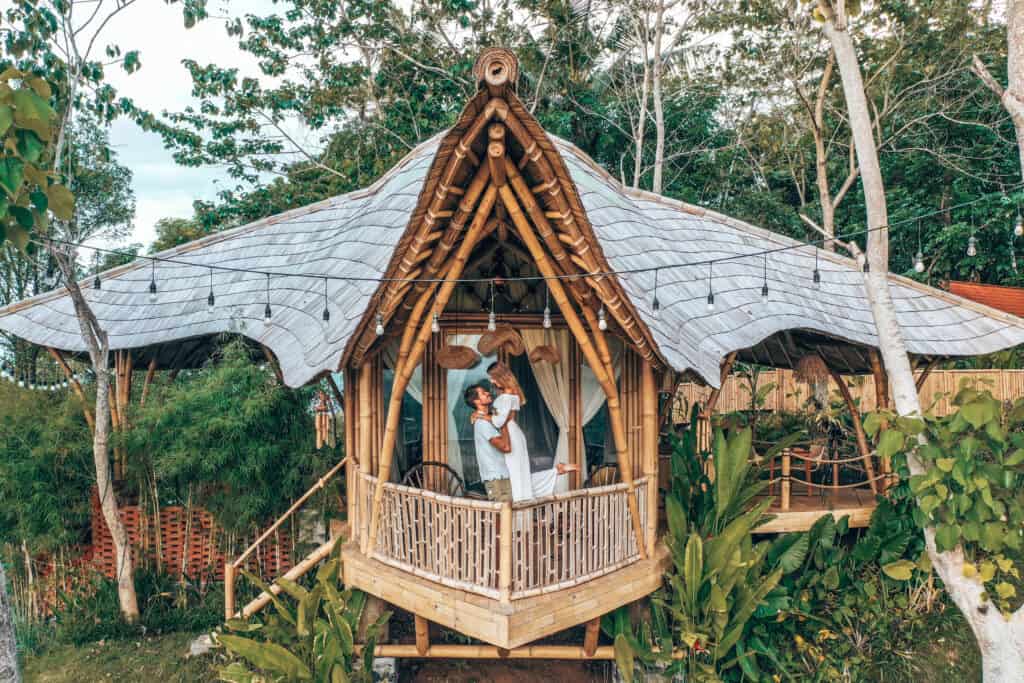
Ethical Animal Experiences
Sadly there is a lot of animal mistreatment and abuse for human entertainment in the world. As an Eco Traveler, we don’t want to support any of these animal attractions. That is why we have to educate ourselves before we visit anything like that.
Any attraction, including human interaction like touching, riding, taking selfies with wild animals, is usually unethical. Animals are generally taken from their mother as a baby and massively abused to be obedient.
Zoos, Marine Parks with Whale / Dolphin shows, Circus, and all other attractions where animals are kept in captivity should not be supported either. Eco Travel means to respect mother nature, and that means animals should be in their natural habitat and roam free.
That is why we recommend you only to experience wild animals on a safari in their natural habitat. Safaris are usually in Nationalparks which protect the animals and their surroundings.
Animals Sanctuaries
Animal Sanctuaries are getting more and more popular amongst travelers. It is the supposedly ethical way of interacting with wild animals. Sanctuaries are essential and exist basically to take care of rejected and injured animals. But today, some unethical animal tourism attractions are covering themselves behind the title sanctuary.
So if you like to visit and support a sanctuary, we recommend you to read about it before. If there is anything like touching, riding, bathing of a wild animal included, it is not an ethical facility and should not be supported. The purpose of a sanctuary is to care for the animals until they can return to their natural habitat. So any close interaction with us would get the animals used to humans and prevent their recovery.
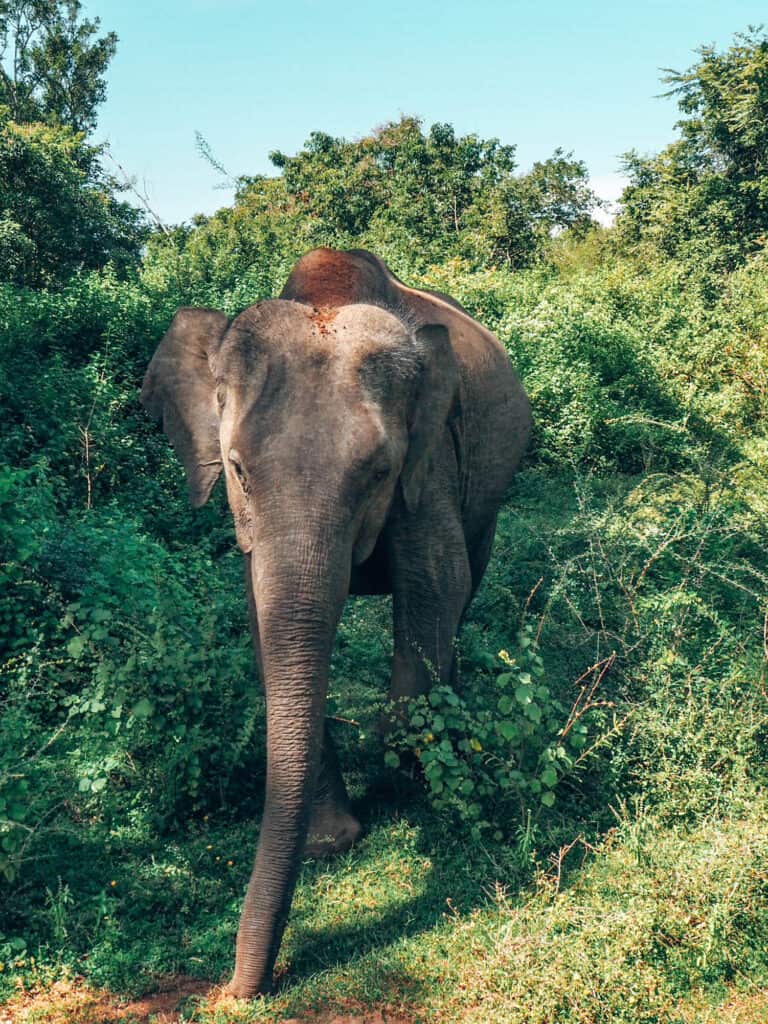
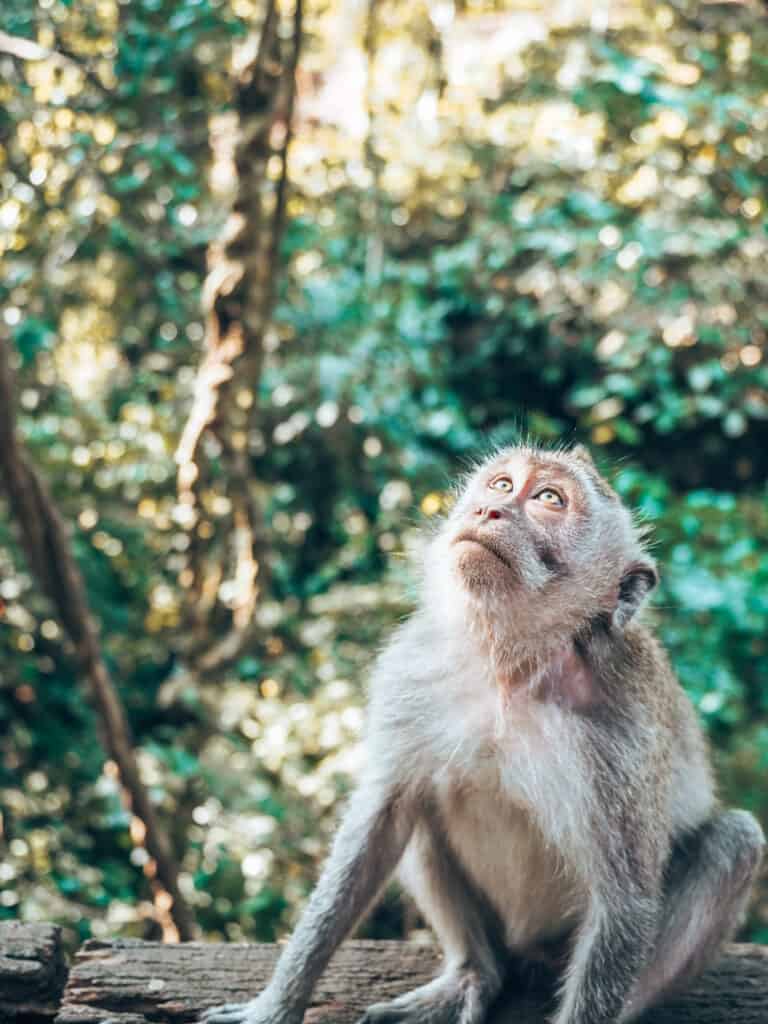
Leave nothing but your footprints
One of the best things about traveling is exploring beautiful beaches, hiking through incredible forests, and stunning waterfalls. Mother Nature is the most precious that we have and also the most fascinating to discover. But if we do so, we should not leave any trash behind. If you leave a plastic bottle behind, it will take around 500 to 1000 years to decompose, but that doesn’t mean it will disappear during that time; it will become only toxic to the environment or end up as micro-plastic in our ocean. So wherever you go in the world, take your trash back with you and leave only your footprints. What is even better than taking only your trash back with you is to take the garbage that you’ll find there as well. We collect trash with our 4Ocean bag, which we bought to support them, but you can certainly use every bag for that. We know it’s not our trash, but it’s our planet, and we want to make it clean again, right?
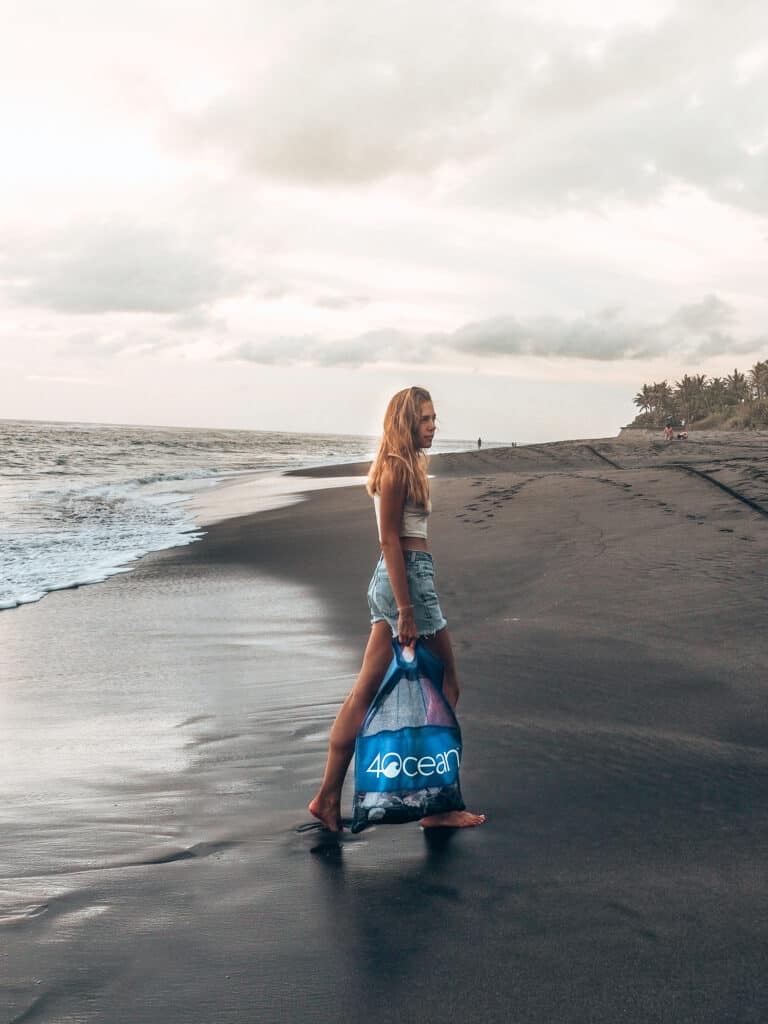
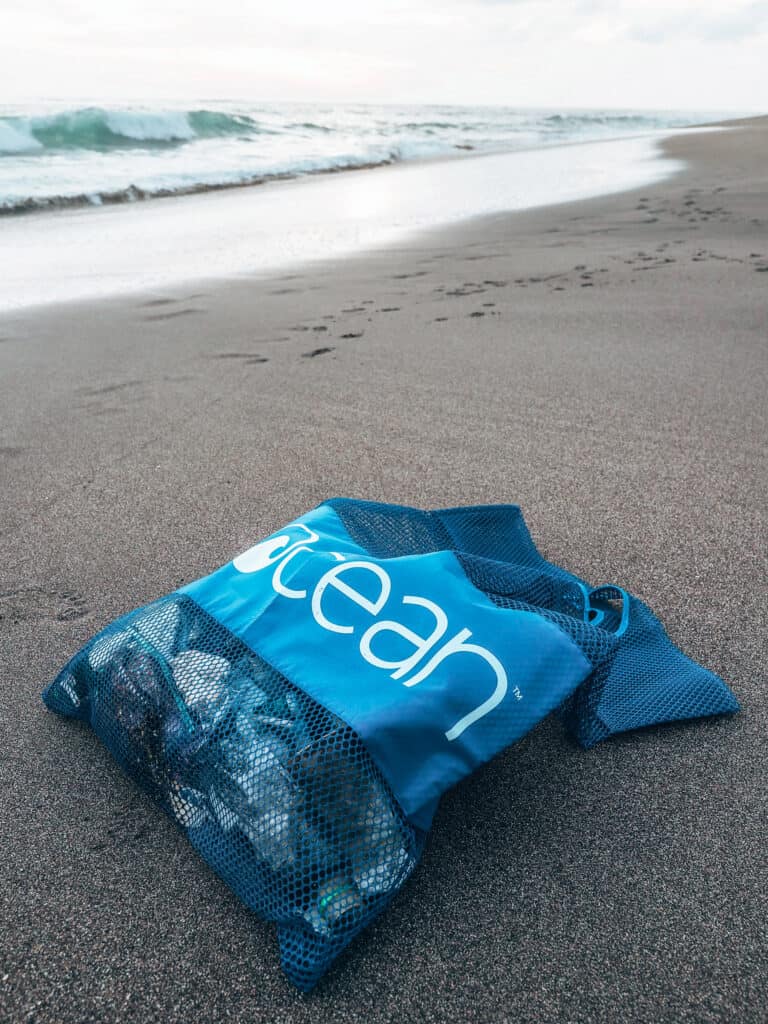
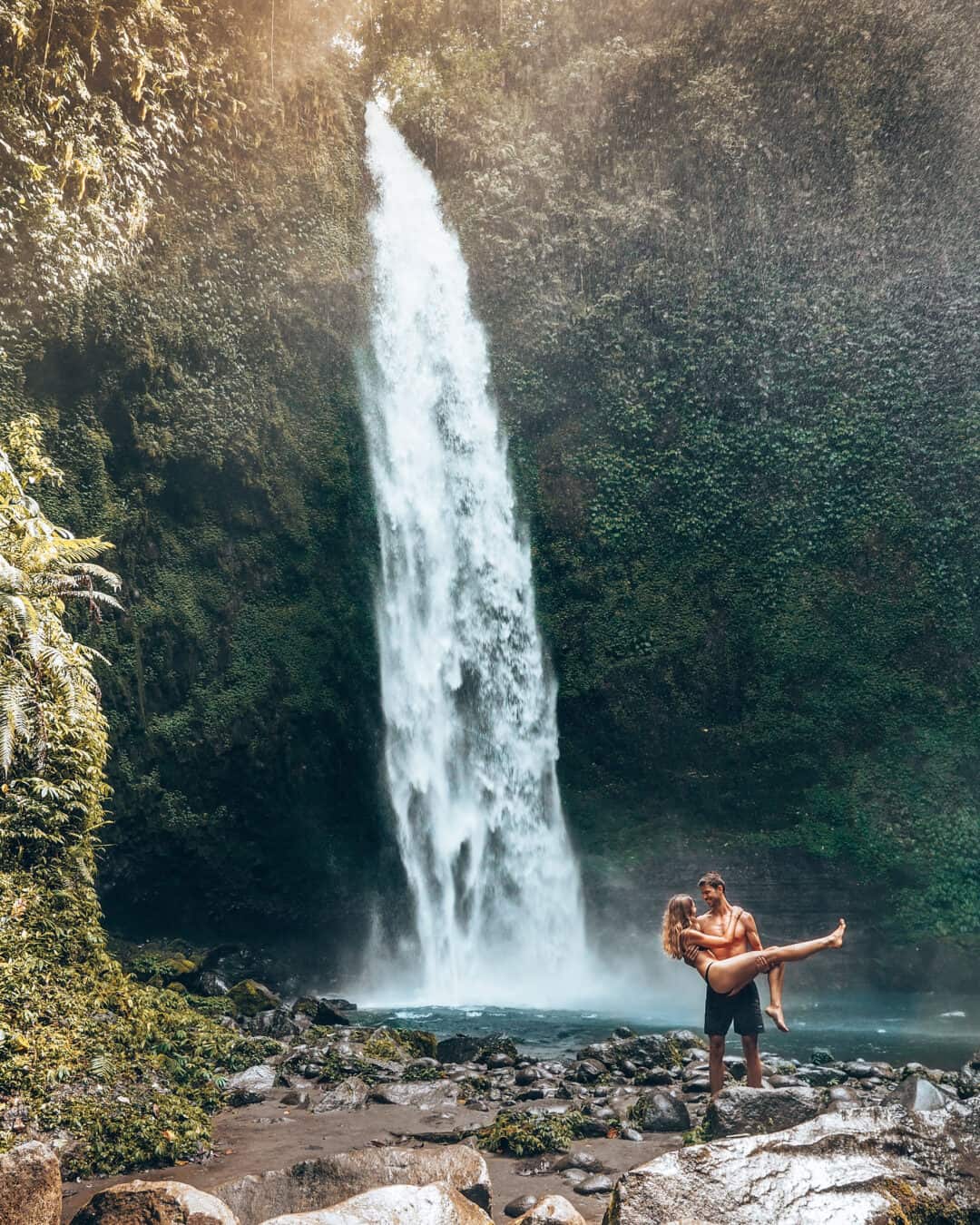


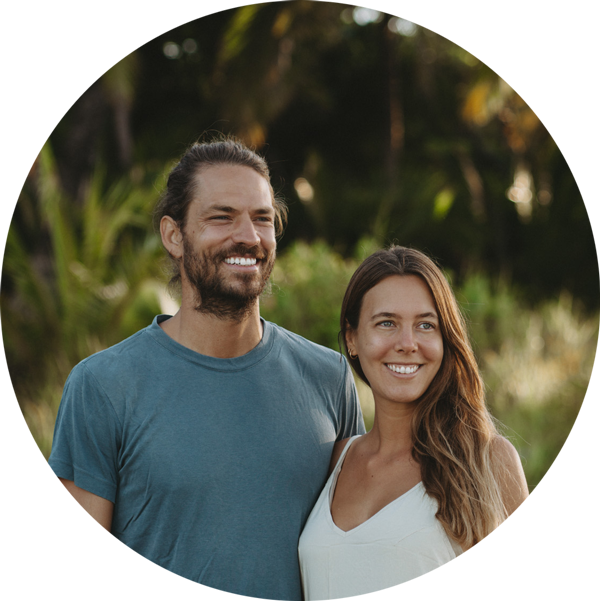







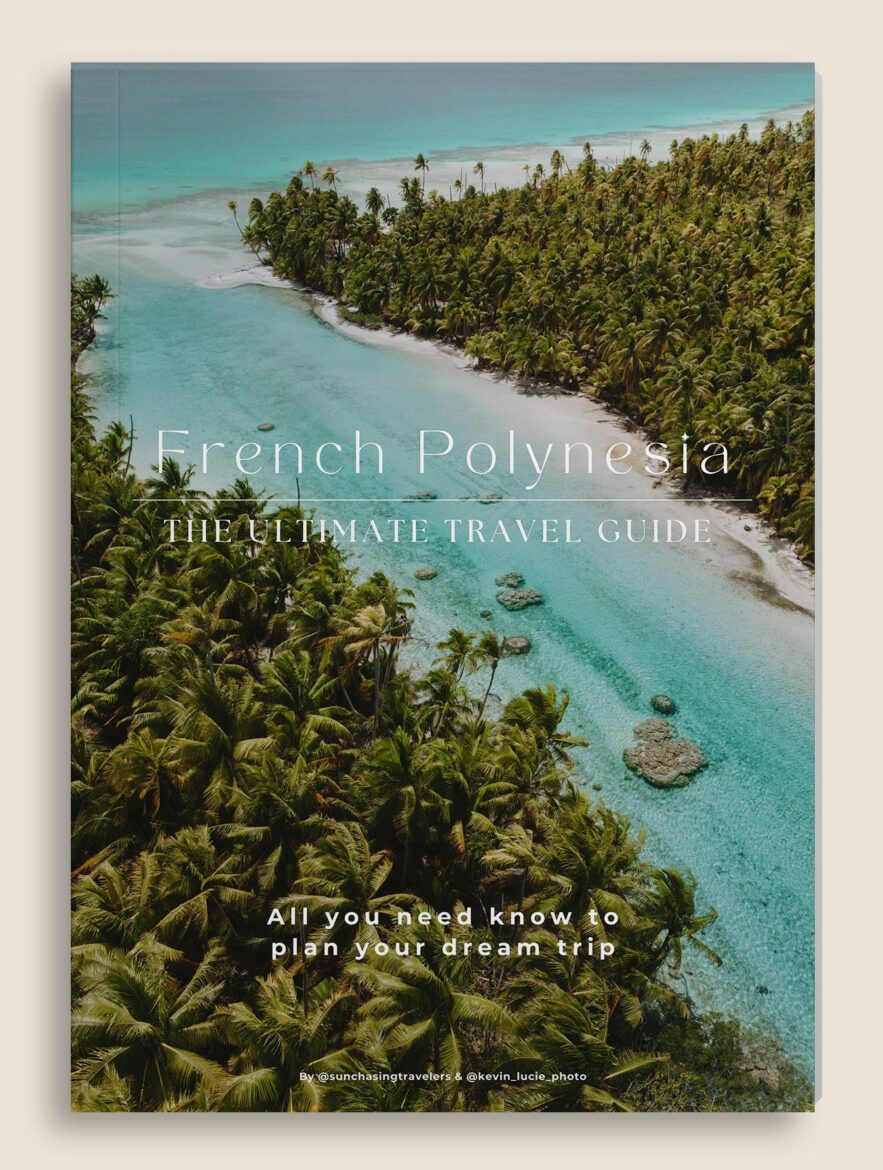
Thanks for sharing these sustainable travel tips! Glad we have similar ideas on how to be more eco friendly when travelling and at home!
Hey Vivien. Thank you so much for your lovely comment. We’re thrilled to hear that you like our post and that we have the same ideas :). Best wishes, Stefan and Lea